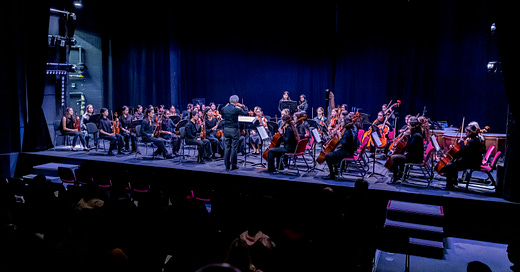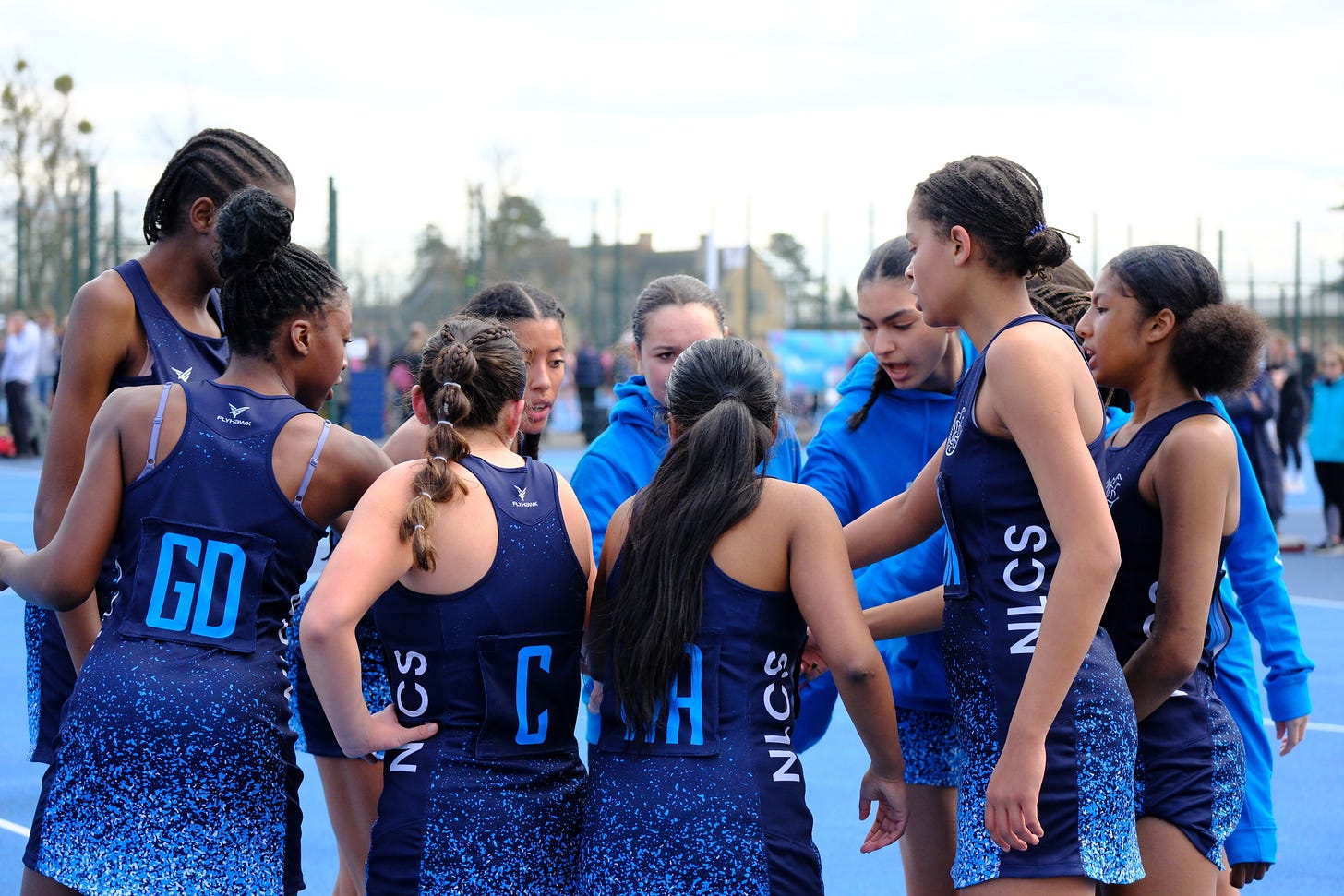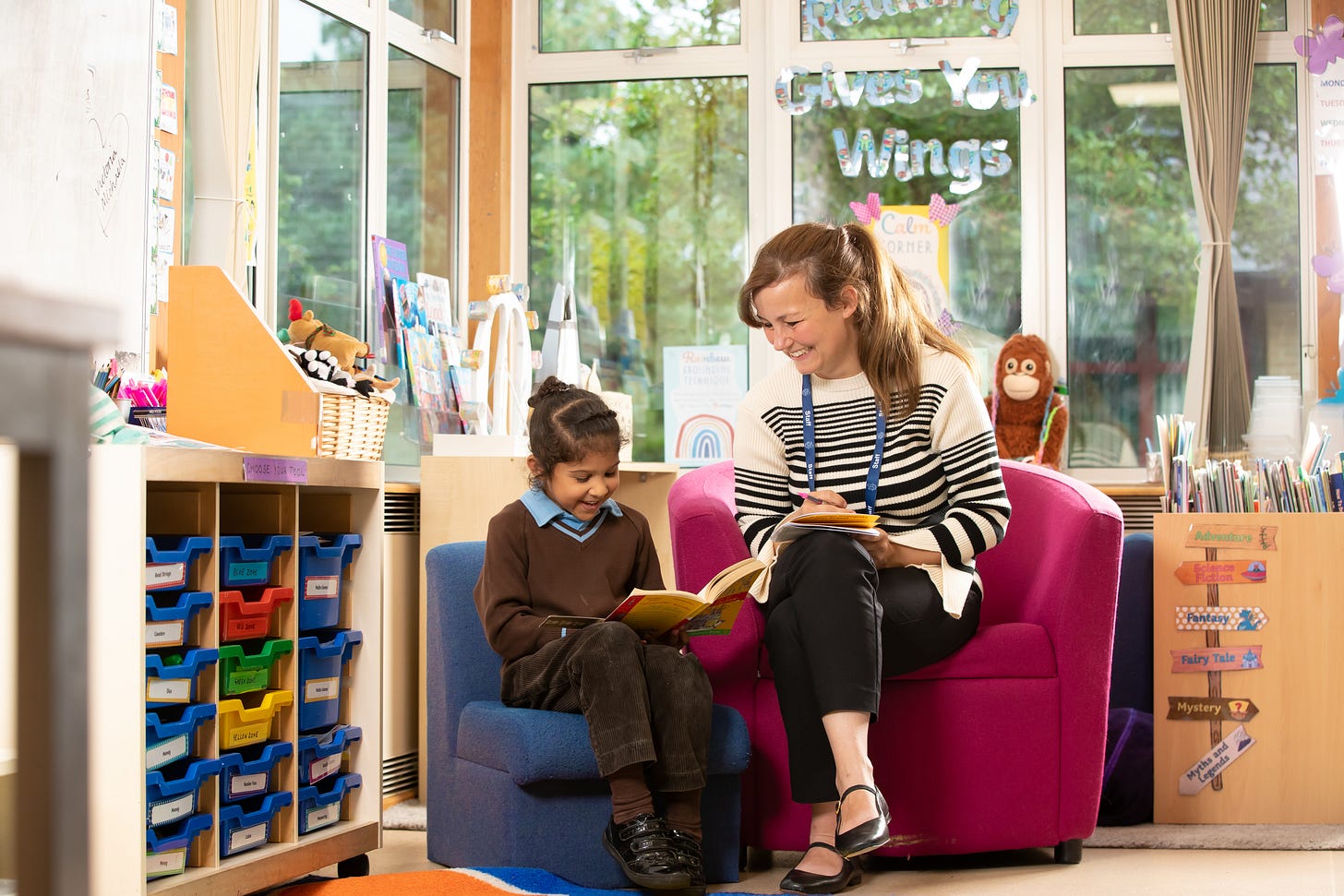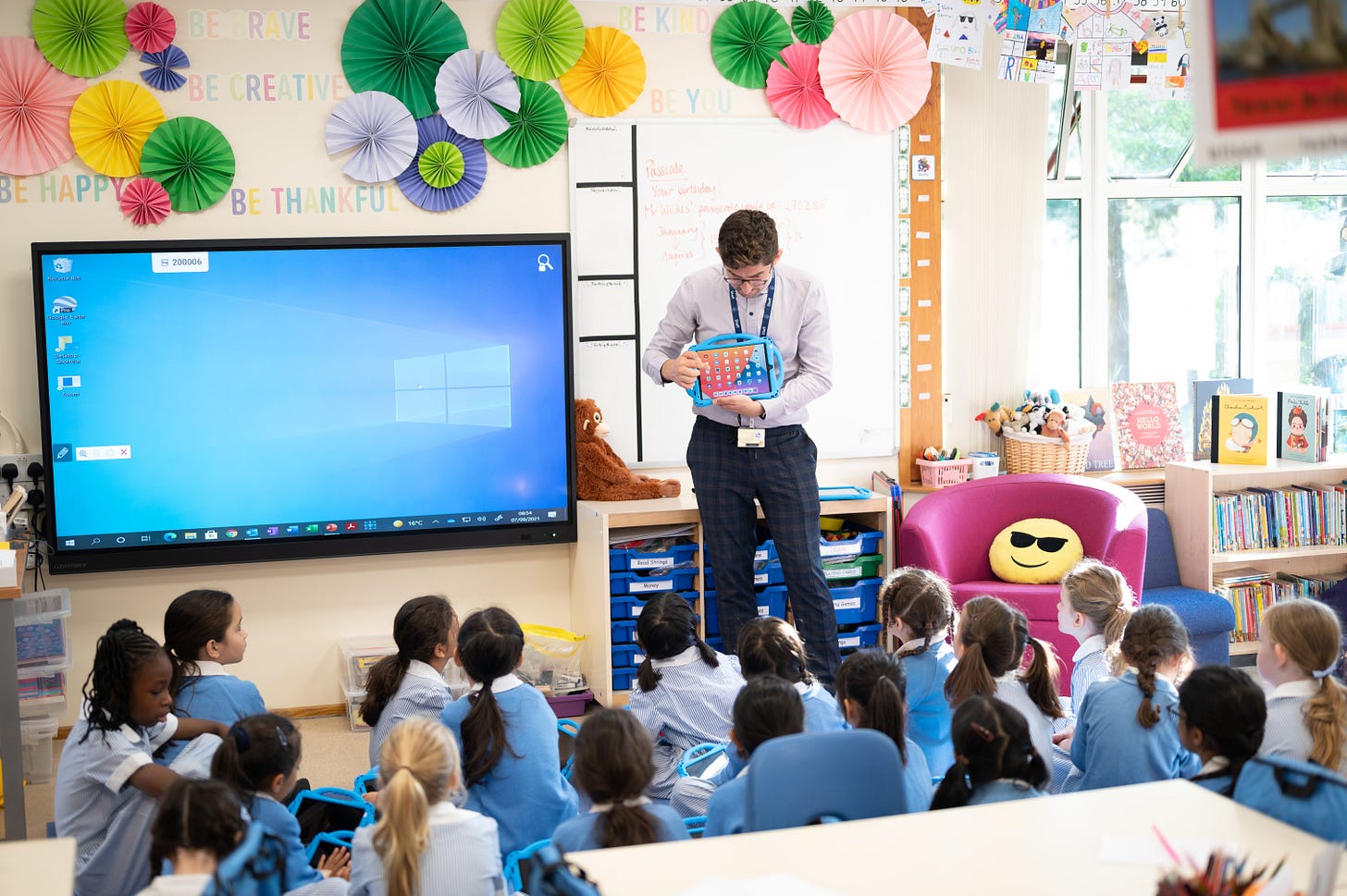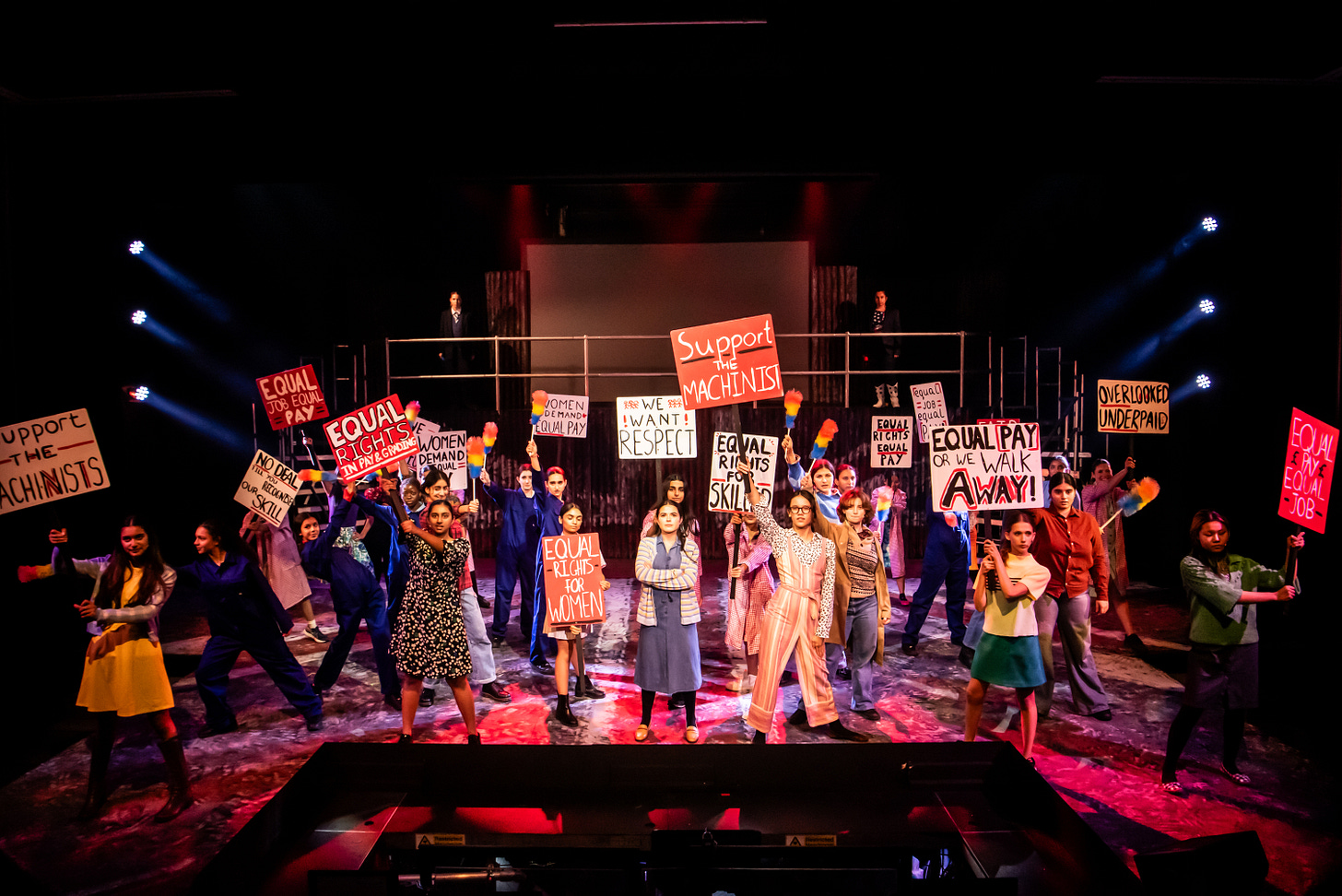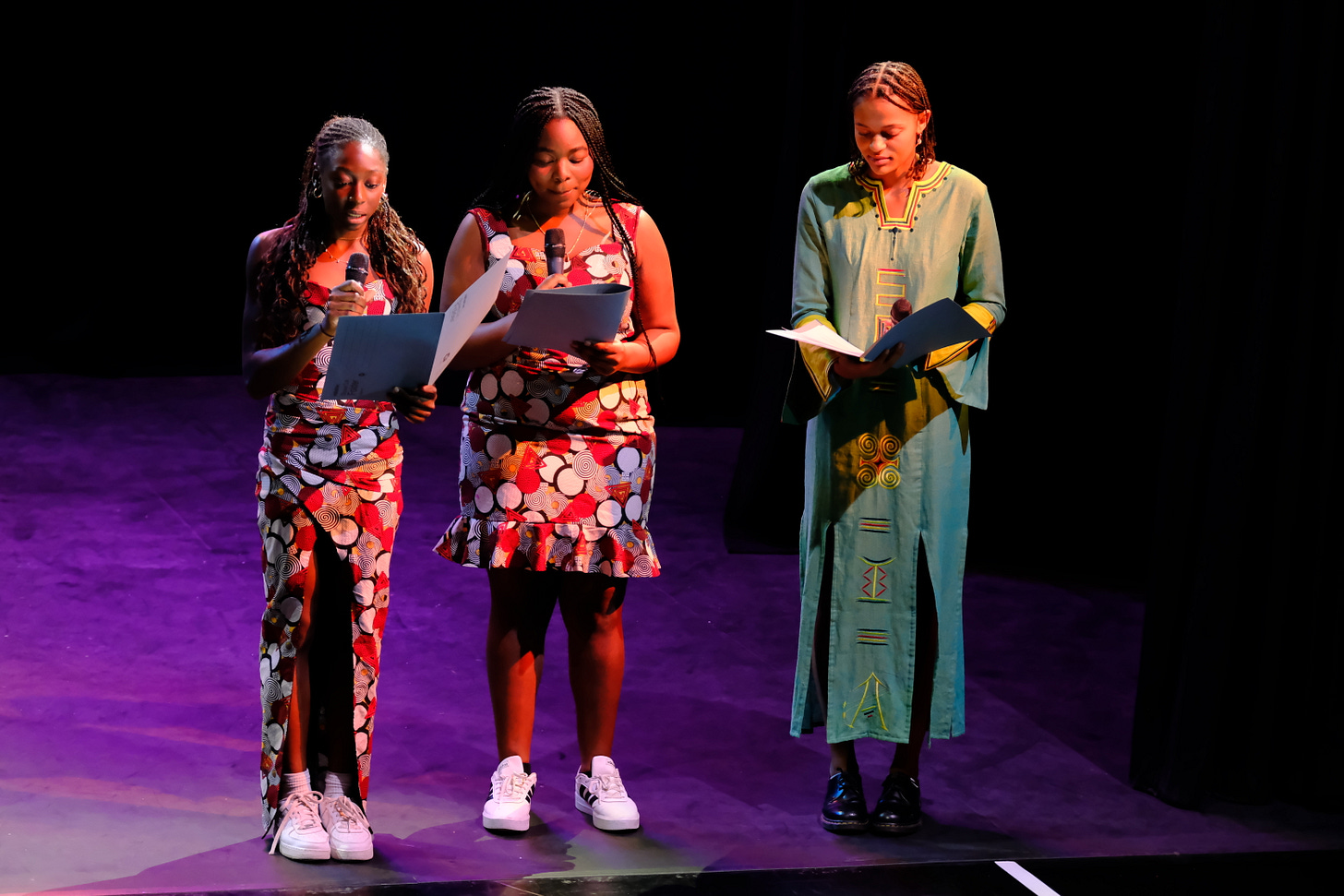The NLCS Ideas Hub Substack, Vol 3, December 2024: 175 Years of Innovative Minds
An innovation in education substack from North London Collegiate School to share our practices and ideas. Editors: Robin Street, Director of Innovation and Will Van Reyk, Deputy Director of Innovation
Resilience and buoyancy: extracurricular activities and our understanding of student success
Robin Street
Too often when schools decide to engage in research, the available resources - while potentially transformational - can seem overwhelming. The prospect of needing dedicated staff time for research, coupled with questions about publishing and purpose, can make it feel unmanageable. At the Ideas Hub, we're committed to engaging with research, but on terms that are sustainable for our community and impactful for our staff and students. If our work sparks wider debate and discussion with colleagues, all the better.
As our school moves into its 175th anniversary year, celebrating nearly two centuries of innovative thinking, we're delighted to launch our first Ideas Hub research project. While teachers across all sectors have long recognised the importance of activities outside the classroom, we're focusing on a particular strand of investigation around academic buoyancy.
As Jai Majithia explains in this edition of our Substack, what we call co-curricular 'enrichment' at NLCS integrates seamlessly with learning rather than supplementing it. When students take charge of societies, organise events, or engage with visiting speakers, they're developing capabilities that are increasingly essential for their futures. This observation has led us to some intriguing research questions.
Academic ‘buoyancy’ offers a nuanced way of understanding how students handle daily challenges and opportunities. Will Van Reyk is leading this study with a small pilot group in Year 12, while Claire Mogridge, who shares her thoughts below, ensures we consider these questions across both Junior and Senior schools.
We hope this edition of our Substack provides interesting food for thought regarding our approach to academic buoyancy. Several schools have already expressed interest in collaborating on this research, and we welcome others to join us. If you'd like to learn more about this work or explore how your school might participate, please contact us at ideashub@nlcs.co.uk.
In addition to our research focus, we've included updates on other Ideas Hub initiatives in this third edition of our Substack. Join us as we share insights and developments from the Hub, where we're pleased to be contributing to educational innovation in side and outside the classroom.
The 175 Anniversary Research Project: ‘Buoyancy: A Fresh Take on Student Flourishing’
Will Van Reyk
The term "resilience" has become a cornerstone in education, often invoked to describe how students overcome significant challenges. However, another concept—"buoyancy"—may be just as important, especially when it comes to the day-to-day pressures of school life. At North London Collegiate School, we are beginning to explore this idea, with a particular focus on the role of extracurricular activities in building buoyancy.
What is Buoyancy?
While resilience addresses major setbacks, buoyancy relates to students’ ability to manage everyday struggles, such as exam stress or disappointing grades. Researchers Martin and Marsh, who introduced this concept in 2008, argue that buoyancy better reflects the ongoing challenges of academic life.
Jon Beale, writing in We talk so much about resilience, but not enough about buoyancy, explains that buoyancy complements resilience and may even underpin it. This echoes Angela Duckworth’s notion of "grit," where resilience forms part of a broader framework for persistence and success.
Why Extracurriculars Matter
Our hypothesis is that extracurricular activities—sports, drama, music, academic clubs—play a crucial role in fostering buoyancy. Research suggests these activities build self-esteem, leadership skills, and mental resilience, all of which may help students navigate life’s smaller setbacks.
At NLCS, we are testing this hypothesis through a pilot study involving a small group of Year 12 students. As part of this initiative, we are tracking their participation in extracurricular activities while using the Martin and Marsh Academic Buoyancy Questionnaire to gather data. This pilot lays the groundwork for a larger research project planned for the school’s 175th anniversary, which will expand the study to explore the broader relationship between extracurriculars and student flourishing.
Here are the validated questions developed by academics Martin and Marsh to assess academic buoyancy. Respondents are asked to rate their agreement with each statement using a Likert scale (e.g., Strongly Agree, Agree, Neutral, Disagree, Strongly Disagree):
"I'm good at dealing with setbacks at school (e.g., negative feedback on my work, poor results)."
"I don't let study stress get on top of me."
"I think I'm good at dealing with schoolwork pressures."
"I don't let a bad mark affect my confidence."
The Road Ahead
By combining academic research with real-world data, we hope to provide new insights into how schools can cultivate buoyancy. Our findings could also support the growing emphasis on extracurricular opportunities in the UK, as reflected in recent government initiatives to enhance access to music, arts, and sports. Ultimately, this research will help us refine our own extracurricular programme and share strategies with the wider educational community.
From Curiosity to Research: A Junior School Teacher’s Journey into Academic Buoyancy
Claire Mogridge, Reception Form Teacher
For the past six years, I have been immersed in academia, balancing the demands of studying for a degree in Education Studies, a PGCE, and full-time work, all while experiencing the joys and challenges of raising three powerful daughters. This journey began with the desire to model lifelong learning and achieve my dream of becoming a teacher. However, it soon evolved into a genuine addiction to evidence-informed practice and an insatiable thirst for knowledge. By the time I completed my studies, I found myself wondering how I would fill the void left by this constant pursuit of learning. So, when the opportunity arose to continue my academic journey, I eagerly embarked on a Master’s in Education.
The aforementioned daughters, each remarkable in her own way, have had distinctly different experiences within the education system. Their diverse journeys sparked my interest in understanding why some children are more resilient, confident, and equipped with a stronger academic self-concept than others. This question has long intrigued me, both as a parent and as an educator. How do children navigate the ups and downs of school life? How can educators and parents best support their ability to adapt and thrive?
When it came to choosing a research focus for my Master’s, I initially felt unsure about where to begin. I approached Robin and Will to learn more about the research being conducted in the senior school, and through these conversations, I was inspired to explore how concepts like resilience and buoyancy might apply within the Junior School context.
These questions now underpin my Master’s research, which builds on Martin and Marsh’s pivotal distinction between academic resilience and academic buoyancy. While resilience typically relates to overcoming significant adversity, academic buoyancy focuses on managing the everyday challenges that characterise school life.
For our girls, academic buoyancy might manifest in how they respond to mistakes in areas where they have previously excelled, how comparisons with peers can unexpectedly undermine their self-esteem, or how well-intentioned language about being "the best" and "academically able" might unintentionally shape their mindset. This distinction feels particularly relevant at NLCS, where high academic expectations are prevalent. Additionally, it underscores the importance of early childhood experiences as a foundation for future success.
I am incredibly grateful for the encouragement and thoughtful support I’ve received from colleagues in pursuing this research. As a Reception teacher, I see firsthand how early experiences—both at home and at school—shape a child’s academic self-concept and capacity to bounce back from setbacks. By delving into how academic buoyancy can be cultivated through evidence-informed practices, I hope to develop strategies that nurture my students' holistic growth. My aim is to go beyond surface-level interventions, exploring the interplay between early childhood experiences, school expectations, and the nuanced challenges faced by high-achieving students—especially girls, who research suggests are more vulnerable to stress during transitional periods (Flores-Buils and Andrés-Roqueta, 2023).
Through my research, I aim to investigate how schools can foster academic buoyancy while balancing academic excellence with well-being. I’m particularly interested in how parental expectations, early play-based learning, and the design of extracurricular activities contribute to this development. Ultimately, I hope my findings will inform not only my teaching practices but also broader conversations about creating resilient, buoyant learners who thrive academically and personally.
Some Reflections on the Culture of ‘Enrichment’ at NLCS
Jai Majithia, Senior Assistant Head
Enrichment at NLCS is a core aspect of a student’s learning. The nomenclature adopted by NLCS of ‘Enrichment’ to encapsulate the broader provision outside of ‘traditional’ teaching and learning, is a helpful way to think of the uniqueness of the what is on offer. We do not see the provision of Societies, Clubs, and Activities as something that is extra (ie. Extra-Curricular) or running parallel (ie. Co-Curricular), but rather something the enhances the provision already in place. Students take part in and lead a wide variety of activities and events each week, that enrich their learning, their development as individuals, and, of course, the community as a whole. Indeed, across a week, there are over 100 Clubs and Activities on offer, with students having the chance to attend music ensembles, sporting activities, drama clubs, through to more unusual opportunities, such as a magic club or theatre tech club, or go to a local Care Home or teach at a local Primary School.
One of the fundamental aspects is our Senior Societies programme, where students in Y12-13 apply for and take on a leadership role in one of the fifty Societies, ranging from the traditional such as History Society, through to the more unusual, such as our Humanist Society. These leadership roles allow students to have an unparalleled impact on the cultural and intellectual life of the School, with events usually being run by one or more Societies. This means that year-on-year the Calendar of Events is remarkably different as each Society will choose to lead even well-established events in their own idiosyncratic fashion. Take, for example, our celebration of Black History Month, which this year included a student-led fashion show celebrating different Black Cultures across the globe. It may well be that next year’s Afro-Caribbean Society choose to celebrate Black History Month in a slightly different way, but the core elements of student leadership and aim to enrich the School Community remain.
On the more academic front, the Senior Societies Programme allows students to engage with their subjects on a much greater depth. The students in charge will invite 250 external speakers a year (previous guests have included Alex Shulman, Gina Miller, and Nazanin Zaghari-Ratcliffe), ranging from leading politicians, lawyers, and journalists through to scientists, doctors, and film directors. Every Thursday, Y11-13 have a timetabled slot to attend one of four Society led speaker events, with every Society having the chance to lead at least one of these in an academic year. This opportunity allows students the chance to question, debate, and discuss with incredible experts in their respective fields, thereby pushing their understanding into highly academic territory.
The benefits of the programme, therefore, are exceptional. On the more obvious level, students are able to take on leadership in areas they are passionate about, whether these areas are academic or cultural. They will learn skills of delegation, time-management, and collaboration in a more practical sense. At a more fundamental level, the students will have the chance to understand that an engagement with ideas can be purely for their own joy, rather than that of an exam.


